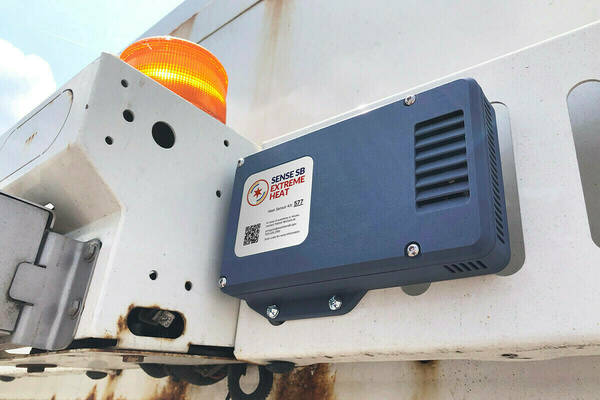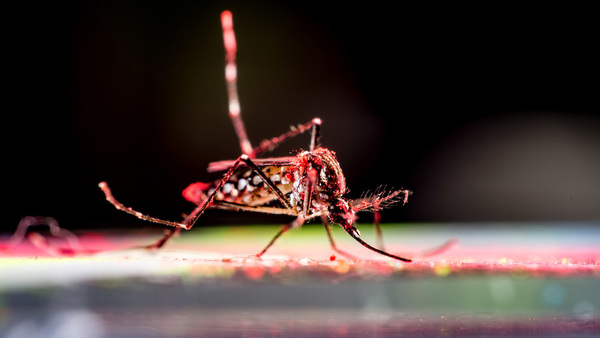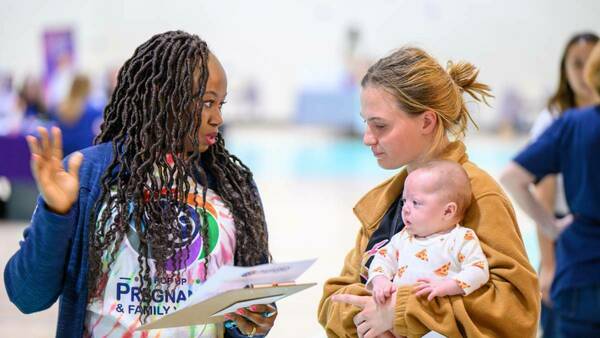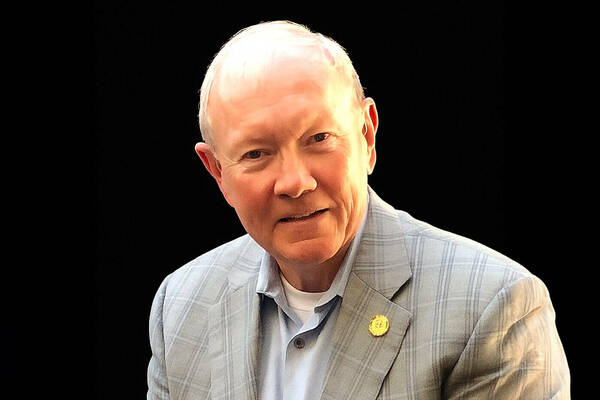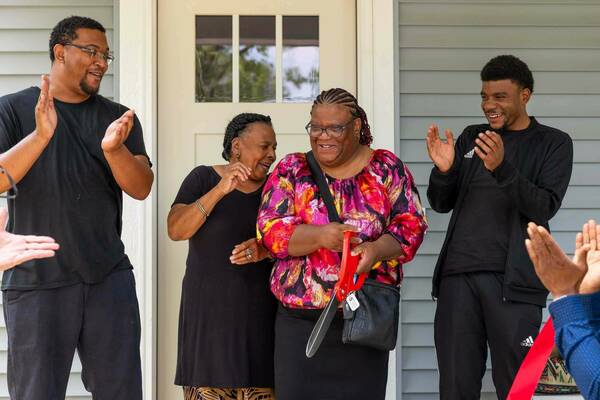Collecting more than trash: Researchers equip local garbage trucks to gather data on urban heat island effect

When heat waves hit, they don’t hit evenly. Cities often experience significantly higher temperatures than nearby rural areas, and areas with more pavement and concrete and fewer trees are more severely impacted.
These urban heat islands, which disproportionately affect lower-income neighborhoods, increase air pollution and energy costs, as well as heat-related illnesses and deaths.
To help identify — and ultimately mitigate — heat islands in South Bend, a team of University of Notre Dame researchers has partnered with the city to collect data using a novel method: garbage trucks.
Ming Hu, the associate dean for research, scholarship and creative work in Notre Dame’s School of Architecture; Jason Carley, an assistant professor of industrial design; and Siavash Ghorbany, a doctoral student in civil and environmental engineering, have designed and deployed sensors on the city’s fleet of garbage trucks that can continuously monitor and record data on temperature and humidity as the trucks complete their normal routes.
The use of garbage trucks as mobile weather research stations offers some distinct advantages and challenges, Carley said. Because garbage trucks run the same route every week, they allow the researchers to gather consistent, detailed data in neighborhoods throughout the city.
“The more challenging part of the study is that you have to have this advanced technology out in the elements, in the rain, on a moving truck,” he said. “So, some of it has to be waterproofed, but the rest of it needs to have access to ambient air and be protected from direct sunlight.”

Carley, who designed custom housing for the sensors, also needed to ensure the housing was secure, was customized to different types of trucks in the fleet and would allow for accurate temperature data without interference from the garbage truck itself. After he finalized his design this summer, the sensors were deployed at the beginning of August.
The collaboration between the University and the city began in 2023, Hu said, with discussions on how to use emerging sensor technologies to better understand a range of environmental stressors facing the city, including urban heat island effects and air quality.
“The data collected, along with the resulting analytical tools, will support the city in allocating both financial and physical resources — like tree planting — and in planning for greater resilience as extreme weather conditions intensify,” Hu said.
Identifying heat islands within the city is especially important, Carley noted, because extreme heat is most likely to impact vulnerable populations, including lower-income families and the elderly.
“Air conditioning is expensive and energy intensive, so it may not be something lower-income residents have as much access to,” Carley said. “When you have hot temperatures outside and inside the home, it becomes a public health issue. Adding green spaces and trees is important not just for recreation or aesthetics, but to protect the health of residents.”
The research builds on work that Hu and Ghorbany completed at Notre Dame last year to determine where heat islands might exist on campus. As they collected data, Ghorbany developed a model, fine-tuned for the Notre Dame campus, that uses satellite imagery to measure building density, materials and vegetation coverage through segmentation and computer vision techniques. He then used machine learning to identify areas with the highest potential for experiencing a heat island effect.
“This project allows us to test our model on a larger scale, in the city of South Bend,” Ghorbany said. “If it works as we expect it to, we can eventually move to using the model to predict these effects, instead of logging data each time, which is close to impossible for larger cities. By quickly identifying these areas, we can help cities focus their efforts on reducing the temperature by increasing the tree canopy or implementing building renovations.”
The sensors will remain in place during August and September, after which Ghorbany and Hu will analyze the data. Once the analysis is complete, the team will present its findings to the City of South Bend’s Office of Sustainability and share them with South Bend residents.
The researchers also hope to expand the project in future phases to measure air quality and other markers of public health.
“Our work consistently shows that the built environment is not just a physical setting, but a determinant of health,” Hu said. “By linking fine-grained environmental data with building and neighborhood characteristics, we can reveal where risks are concentrated and how design or policy interventions can reduce them. Projects like this one in South Bend demonstrate how data collection at the street level can ultimately guide healthier, more resilient cities nationwide.”
Contact: Carrie Gates, associate director of media relations, 574-993-9220, c.gates@nd.edu
Latest ND NewsWire
- Researchers deconstruct chikungunya outbreaks to improve prediction and vaccine developmentThe symptoms come on quickly — acute fever, followed by debilitating joint pain that can last for months. Though rarely fatal, the chikungunya virus, a mosquito-borne illness, can be particularly severe for high-risk individuals, including newborns and older adults. While the virus is common…
- Eck Institute investigator to strengthen postpartum care for Indiana mothersYenupini Joyce Adams, associate professor of the practice and maternal health lead for the Eck Institute for Global Health at the University of Notre Dame, is partnering with Beacon Health System to pilot a new, first-of-its-kind postpartum care model in the South Bend-Elkhart community.
- Gen. Martin Dempsey to speak at Notre Dame Forum event on ‘Hope, Global Stability and the Role of the United States’Gen. Martin Dempsey, the retired 18th chairman of the Joint Chiefs of Staff, will join University President Rev. Robert A. Dowd, C.S.C., for a fireside chat at 4 p.m. Friday (Oct. 10), as part of the 2025-26 Notre Dame Forum. The discussion, titled “Hope, Global Stability and the Role of the United States,” is part of the exploration of this year’s Notre Dame Forum theme, “Cultivating Hope.” It will take place in Rooms 215/216 of McKenna Hall and will also be livestreamed. The event is free and open to the public.
- University of Notre Dame joins the Global Coalition of Ukrainian StudiesThe University of Notre Dame has joined the Global Coalition of Ukrainian Studies after signing a memorandum of cooperation, formalized Sept. 24, at the Ukrainian Institute of America in New York City. Notre Dame joined four other American institutions that were also publicly welcomed to the coalition at this event: Arizona State University, Columbia University, Manor College and the Shevchenko Scientific Society.
- One year later, Inauguration Build a ‘dream come true’ for Habitat familiesOne year later, work on Inauguration Build 2024 is complete, offering shelter and so much more to five local families.
- Alumni Association and YoungND honor 2025 Domer DozenThe Notre Dame Alumni Association announced its 2025 Domer Dozen cohort, honoring 12 graduates ages 32 and younger for excellence in their contributions in learning, service, faith and work — the core pillars of the association’s mission.



